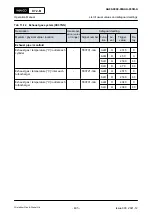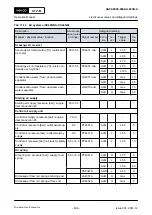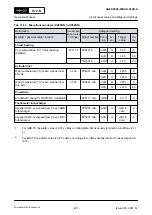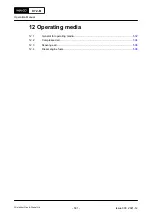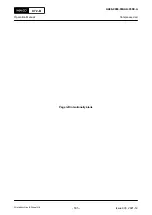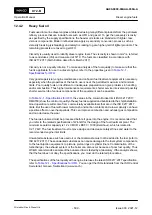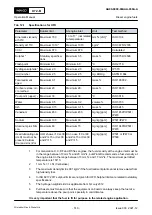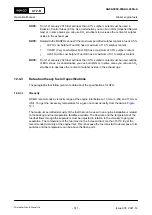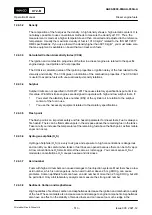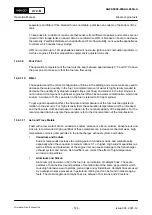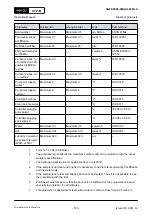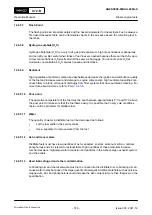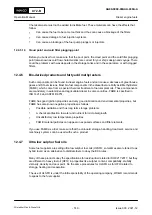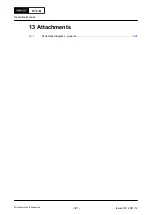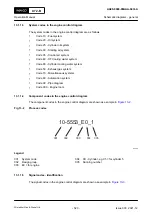
12.4
Diesel engine fuels
12.4.1
General
Almost all hydrocarbon residual, distillate and some renewable fuels can be burned in a diesel
engine if applicable procedures are done. The type and quality of the fuel will have an effect on
the frequency of overhauls and the work necessary to prepare the fuel. It is the primary economic
considerations that according to the type, size and speed of the engine and its application, gives
the fuel quality margins.
Gas oils and diesel oils (distillates) can be used in all WinGD engines with some limits. WinGD 2-
stroke diesel engines are designed to operate on up to 700 mm
2
/s (cSt) at 50°C viscosity heavy
fuel oil (ISO 8217:2017 RMK 700 grade) if sufficient fuel heating and treatment is done.
Heavy fuel oil must have treatment in an applicable fuel treatment plant on board. When bunkering,
it is possible that the fuel suppliers will report only some of the values given in the Quality
Specifications. Frequently, only the density and maximum viscosity is given. This makes the full
understanding of the properties of the fuels very difficult, thus it is important to get a full certificate
of analysis with each bunker.
The supplier must guarantee the stability of the fuel and thus the resistance to the formation of
sludge. Also, the fuel must not have a corrosive effect on the injection equipment and must not
contain used lubricating oil, chemical waste or other foreign matter.
Fuels from different bunkers must not be mixed because there is a risk that the fuels have different
compositions. This can cause fouling of filters or too much sludge, which will overload the fuel
preparation equipment. Fresh bunkers must always be put into empty tanks and not added to old
bunkers.
X72-B
AA00-0000-00AAA-030A-A
Operation Manual
Diesel engine fuels
Winterthur Gas & Diesel Ltd.
- 508 -
Issue 003 2021-12


